-
KEYNOTE SPEAKERS

Chair Prof. Yu Huang (FISHR, FIUPS, FBPS)
City University of Hong Kong
Yu HUANG received his BSc from Fudan University Shanghai Medical College and a PhD from University of Cambridge. He served as the Chair Professor of Biomedical Sciences (2010-2021) in Chinese University of Hong Kong until October 2021. He is the Jeanie Hu Professor of Biomedical Sciences, Chair Professor and Head of the Department of Biomedical Sciences at City University of Hong Kong. He has been recently elected as the foreign member of Academia Europaea (The Academy of Europe) in 2025. He is the Vice President of Chinese Section of International Society for Heart Research (ISHR) and Chinese Association for Physiological Sciences. He is an elected Fellow of ISHR, International Union for Physiological Sciences Academy of Physiology, and British Pharmacological Society. He received the Inaugural Hong Kong Research Grants Council - Senior Research Fellow Award (2020). He is the first Chinese scholar to receive the Peter Harris Distinguished Scientist Award from ISHR (2024). He is an Associate Editor of Circulation Research. His team aims to elucidate cellular and molecular events in the initiation and progression of endothelial cell dysfunction in hypertension and diabetes, to uncover novel biomarkers of vascular pathogenesis, and to develop ways to reverse vascular dysfunction in animal models of cardiometabolic disease. He has co-authored 525 SCI publications including Nature, Science, Circulation Research, European Heart Journal, Cell Metabolism, PNAS, Diabetes, Hypertension, Cardiovascular Research, Kidney International etc. with over 37,650 Google scholar citations and an h-index of 101.
Speech titile: "Mechanobiology in Drug Discovery"
Abstract: Atherosclerosis, the primary driver of cardiovascular disease, has traditionally been viewed as dysregulated lipid metabolism and inflammation. However, the pivotal role of mechanical forces in the pathogenesis of the disease is also important. Hemodynamic forces, such as disturbed flow with low and oscillatory shear stress, are primary initiators of endothelial cell dysfunction, initiating the inflammatory cascade and plaque development. Despite its established significance, the "mechanome" remains an under-exploited target in anti-atherosclerotic drug discovery. Recent studies have identified novel therapeutics that target mechanosensitive pathways, such as the YAP/TAZ, 5-HT IB receptor, KLF2, and UCP2 signaling. The integration of mechanobiology into the drug discovery pipeline represents a new strategy for atherosclerosis treatment. By moving beyond a purely biochemical approach and targeting the physical driver of atherosclerosis, we can uncover a new class of "mechano-therapeutics" that halt or reverse atherosclerosis progression by restoring vascular homeostasis. This approach offers significant promise for developing targeted and effective treatments to reduce this global health burden of atherosclerosis (supported by RGC-T12-101/23-N and SRFS2021-4S04).

Prof. Hesham H. Ali
University of Nebraska Omaha
Hesham H. Ali is a Professor of Computer Science and the director of the University of Nebraska Omaha (UNO) Bioinformatics Core Facility. He served as the Dean of the College of Information Science and Technology at UNO between 2006 and 2021. He has been a research collaborator at Mayo Clinic Research Hospital since 2022. He has published numerous articles in various computing and informatics fields of research, including scheduling, distributed systems, data analytics, wireless networks, and Bioinformatics. He has published two books in scheduling and graph algorithms, and several book chapters in Bioinformatics. He has been serving as the PI or Co-PI of several projects funded by NSF, NIH and Nebraska Research Initiative in the areas of AI, Bioinformatics, Data Analytics and Wireless Networks. For the last 25 years, he has also been leading a Bioinformatics Research Group that focuses on developing innovative computational approaches to model complex biomedical systems and analyze big bioinformatics data using AI tools, Network models, and graph algorithms. The research group is currently developing next generation data analytics tools for analyzing large heterogeneous biological and health data associated with various biomedical research areas, particularly projects associated with infectious diseases, microbiome studies, early childhood development and aging research. He has led many local and national outreach initiatives, including Bioinformatics training workshops, Women in IT initiatives, IT education and training programs, and IT summer internship camps.odels can leverage the new biomarkers in supporting advanced biomedical research and lead to the next generation of healthcare.
Speech titile: "The Expanding Role of AI-Rich Biomedical Informatics in Supporting Biomedical Research and Advancing Healthcare "
Abstract: The last several years witnessed major advancements in the development of technologies with the goal of collecting various types of data in many application domains. The biomedical domain represents a clear example of such development, since every time the evolving biomedical technologies make it possible for bioscience researchers to have access to new type of biological data, exciting research questions attract new studies: Would it possible for the new data to provide new biological signals, signatures or biomarkers to be used for supporting biomedical research and advancing healthcare? Would the biological signals associated with the new data be robust enough to be used for the purpose of early disease diagnosis or the assessment of different treatments for certain health conditions. In this talk, we provide a brief introduction to biomarkers and how various technologies helped produce biomarkers with major impact on biomedical research and healthcare. We then discuss how recent technologies have made it possible to generate new types of data that can be used to obtain a new generation of biomarkers. We discuss biomarkers obtained from mobile wearable devices, microbiome data, and nanoparticles profiles. We discuss how the exciting new AI tools and network models can leverage the new biomarkers in supporting advanced biomedical research and lead to the next generation of healthcare.

Prof. De-Shuang Huang
Ningbo lnstitute of Digital Twin, Eastern Institute of Technology
Foreign Academician of Russian Academy of Engineering,IEEE Fellow, IAPR Fellow & AAIA Fellow
De-Shuang Huang is a Professor/Director in Ningbo Key Laboratory of Multi-Omics & Multimodal Biomedical Data Mining and Computing, Ningbo Institute of Digital Twin, Eastern Institute of Technology, Ningbo, China. He is currently Foreign Academician of Russian Academy of Engineering, the Fellow of the IEEE (IEEE Fellow), the Fellow of the International Association of Pattern Recognition (IAPR Fellow), the Fellow of the Asia-Pacific Artificial Intelligence Association (AAIA), Fellow of the International Artificial Intelligence Industry Alliance (AIIA), and associated editors of IEEE/ACM Transactions on Computational Biology & Bioinformatics and IEEE Transactions on Cognitive and Developmental Systems, etc. He founded the International Conference on Intelligent Computing (ICIC) and the International Conference on Applied Intelligence (ICAI) in 2005 and 2023, respectively. He also served as the 2015 International Joint Conference on Neural Networks (IJCNN2015) General Chair, July12-17, 2015, Killarney, Ireland, the 2014 11th IEEE Computational Intelligence in Bioinformatics and Computational Biology Conference (IEEE-CIBCBC) Program Committee Chair, May 21-24, 2014, Honolulu, USA. He has published over 480 papers in international journals, international conferences proceedings, and book chapters. Particularly, he has published over 260 SCI indexed papers. His Google Scholar citation number is over 25815 times and H index 84. His main research interest includes neural networks, pattern recognition and bioinformatics. His main research interest includes neural networks, pattern recognition and bioinformatics.
Speech Title: :Motif Mining in Biological Sequence Based on AI Technology"
Abstract: Biological sequence motif mining by deep learning method, i.e., mining transcription factor/translation factor (TF) plays a central role in gene regulation. Knowing the binding specificities of TFs is essential for developing models of the regulatory processes in biological systems and for deciphering the mechanism of gene expression. In this talk, I will first present the fundamental issue for motif prediction of biological sequences, then systematically present motif prediction of biological sequences in combination with the popular emerging technology “Deep Neural Networks”. Firstly, we briefly introduce several classical models for deep neural network and the research status of biological sequence motif prediction. Secondly, we provide a detailed introduction to two types of models for sequence motif prediction, including the “sequence-level” and “nucleotide-level” models. Finally, we point out and over-review some new research problems in this aspect.
INVITED SPEAKERS
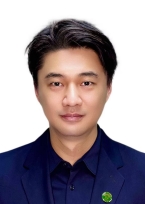
Prof. Heng Song
Wuhan University
Prof. Heng Song serves as a professor at Wuhan University in China. His research specializes in three interconnected areas: 1) deciphering catalytic mechanisms of critical enzymes through advanced spectroscopic and computational analyses, 2) developing strategies for their rational engineering using machine learning-guided approaches, and 3) applying these insights to microbial manufacturing of nature-derived pharmaceuticals with the aid of biocomputing. He has pioneered innovative approaches in biosynthetic pathway engineering and bioprocess optimization for natural product drugs, yielding groundbreaking results that have been published in over 50 peer-reviewed SCI papers across prestigious journals including Nature Chemistry, Journal of the American Chemical Society, Angewandte Chemie International Edition, Nucleic Acids Research, Advanced Science, ACS Catalysis, ACS Synthetic Biology, and ACS Nano. His intellectual property portfolio comprises 2 granted Chinese patents and 1 international PCT patent. Notably, his work has enabled commercial implementation of sustainable, cost-effective biomanufacturing processes for multiple high-value compounds.
Speech Title:"Computation-Assisted Exploration of Natural Product Biosynthesis and Its Applications"
Abstract: Natural products and their chemical structure-derived derivatives serve as a treasure trove for modern drug development. Many functionally significant chemical bonds in natural product structures are introduced through enzymatic catalysis. By investigating the catalytic mechanisms of these key biosynthetic enzymes, we can elucidate the biosynthetic pathways for special chemical bond formation in natural product biosynthesis. Combining this understanding with bioinformatics approaches, we conduct site-directed mutagenesis to modify and influence enzymatic reaction mechanisms, achieving the goal of enzyme engineering. Building on this foundation, we construct efficient biosynthetic pathways through enzyme engineering, optimize biosynthetic efficiency, and further enhance production efficiency during cellular fermentation processes using bioinformatics and artificial intelligence analysis. This integrated approach enables the modification and optimization of biosynthetic pathways for various natural product-based pharmaceuticals and fine chemicals, ultimately achieving environmentally sustainable, cost-effective, and high-yield bioconversion.
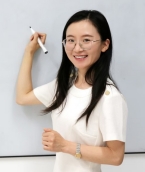
Prof. Hao Jiang
Renmin University of China
Hao Jiang is a Professor with the School of Mathematics, Renmin University of China, Beijing, China. She received the B.Sc. degree from the Harbin Institute of Technology, Harbin, China, in 2009, and the Ph.D. degree from the University of Hong Kong, Hong Kong, in 2013. Her research interests include bioinformatics, data mining, learning-based modeling, optimization, and control of complex systems. She has published over 60 papers in internationally renowned journals and conferences such as Pattern Recognition, IEEE Transactions on Neural Networks and Learning Systems, Bioinformatics, Briefings in Bioinformatics, Applied Mathematical Modeling, and etc.
Speech Title:"Intelligent Ensemble Clustering for Heterogeneity Analysis of scRNA-seq Data"
Abstract: Single-cell transcriptomics has revolutionized the characterization of cell states, with multi-omics profiling further enabling deep functional insights. However, effectively mining cellular heterogeneity from noisy, sparse, and complex single-cell data remains challenging. We propose two novel ensemble learning frameworks that construct and optimize the consensus matrix in an adaptive and robust manner. Both methods capture nonlinear cellular relationships and significantly improve the accuracy of cellular similarity representation. Extensive experiments demonstrate that our approaches outperform existing state-of-the-art techniques, underscoring their effectiveness and potential for robust single-cell data analysis.

Dr. Yaoyao Hao
Zhejiang University
Dr. Yaoyao Hao is a researcher fellow at The State Key Lab for Brain-Machine Intelligence, Zhejiang University, and a joint researcher at the Nanhu Brain-Computer Interface Institute, Hangzhou, China. He received his Ph.D. in Biomedical Engineering from Zhejiang University in 2013 and conducted postdoctoral research at CNRS/Aix-Marseille University, France (2013–2015) and Baylor College of Medicine, USA (2018–2021). Dr. Hao is with extensive expertise in implantable brain-computer interfaces (BCIs), and has led pioneering works in both preclinical (mice, monkey) and clinical (human) applications with intracortical microelectrode array implantation. These achievements have been featured in prominent media, and has earned the Wu Wenjun AI Innovation Award. His research was also recognized among China’s Top 10 Advances in Universities (2016). More recently, Dr. Hao has also focused on clinical BCI translation, developing wireless high-density implantable BCI microsystems and deep brain stimulation (DBS) for treatment-resistant depression. He currently leads multiple projects, including two national brain initiatives, with over 30 publications in journals like PNAS, Adv. Sci. and eLife, and 20+ patents. His research interests span BCI hardware/software systems, neural encoding/decoding of movement, and translational applications of BCIs.
Speech titile: "Neural Encoding and Decoding of Handwriting Trajectories for Brain-to-Text Communication"

Assoc. Prof. Goh Choon Hian
Universiti Tunku Abdul Rahman (UTAR)
Ir. Dr. Goh Choon Hian is an Associate Professor and Head of the Department of Mechatronics and Biomedical Engineering at Universiti Tunku Abdul Rahman (UTAR), Malaysia. He is a Professional Engineer registered with the Board of Engineers Malaysia. Dr. Goh obtained his Bachelor of Biomedical Engineering (Hons) in 2013 and his Doctor of Philosophy (Ph.D.) in Biomedical Engineering in 2018, both from Universiti Malaya. His research expertise lies at the intersection of biomedical engineering and clinical medicine, with a particular focus on understanding and addressing falls and syncope in the older population. He is actively involved in the development of advanced algorithms for early detection, risk assessment, and classification of these conditions. Beyond this, his broader research interests encompass machine learning, data mining, artificial intelligence, and bioinformatics, with a strong emphasis on healthcare applications. Dr. Goh is passionate about leveraging interdisciplinary approaches to improve patient outcomes and enhance the delivery of medical services. He continues to collaborate across engineering and healthcare domains, contributing to both academic advancement and practical innovations in biomedical technologies.

Assoc. Prof. Pietro Pinoli
Politecnico di Milano
Pietro Pinoli is an Associate Professor at the Department of Electronics, Information and Bioengineering (DEIB) at Politecnico di Milano and at the Department of Experimental Oncology of the National Cancer Institute of Milan and lecturer at Vita-Salute San Raffaele University. His research focuses on computational genomics, applied machine learning, and big data analytics applied to genomics and clinical data. He has contributed to several high-impact projects, including EU-funded initiatives on federated health data analysis and genomic surveillance of viruses such as SARS-CoV-2. With a background in computer engineering, his work bridges computational methods and biomedical applications, promoting collaborative and interdisciplinary approaches in precision medicine.

Dr. Yujie Pu
Hong Kong Centre for Cerebro-Cardiovascular Health Engineering
Dr. Yujie Pu is a highly motivated researcher who works as an associate research scientist at the Hong Kong Centre for Cerebro-Cardiovascular Health Engineering under the supervision of Professor Yu Huang. She holds a PhD in biomedical science from The Chinese University of Hong Kong, an MMed in basic medicine from Zhejiang University, and a BSc in biology from Henan University. Dr. Pu has dedicated herself to exploring new therapeutic targets for the prevention and treatment of cardiovascular diseases such as vascular calcification, atherosclerosis, and hypertension. She has published high-impact papers in SCI-indexed journals including Circulation Research, Medicinal Research Reviews, and Journal of Advanced Research. Dr. Pu is a principal investigator of the National Natural Science Foundation of China-Young Scientist Fund. She has served as a reviewer for SCI journals such as Journal of Pharmacy and Pharmacology, Journal of Tissue and Cell, and Cardiovascular Drugs and Therapy, as well as a reviewer for the Multi-Year Research Grant - General Research Grant in Macau.
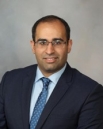
Dr. Siddhant Yadav
Mayo Clinic
I am a consultant here in the division of General Internal Medicine at Mayo Clinic, Rochester, Minnesota. I was born brought up and did my education until high school from New Delhi, India. in the I am a graduate of Charles University, a medical University in Hradec Kralove, Czech Republic. After finishing medical school, I did research in inflammatory bowel disease at Mayo Clinic following which I completed my internal medicine residency in 2018 from Hennepin County Medical Center, Minneapolis, Minnesota. Following this, I worked in Patna, Bihar, India between 2018-2021 helping set up the medical division for a hospital treating financially challenged patient's trying to provide them with the best medical care. Following this, I worked as an intensivist in the ICU during COVID in 2021-2022 prior to joining the Division of General Internal Medicine at Mayo Clinic. Apart from my clinical duties, I enjoy teaching, traveling and exploring different corners of the world. My research include topics such as cannabis, ethical consideration in the field of medicine.
Speech Title: "The Use of Survey Questionnaires and Telephone Survey to Help Improve Patient Reported Details in Healthcare"
Abstract: There has been a hesitancy by patients to report certain details in a face-to-face encounter with a physician. An ex post facto review can lead to improved patient responsiveness when it comes to retrospective evaluation of certain therapeutic for the patient. Anecdotal evidence shows that usually the rate of response of questionnaires in 20-40%. Our study aims to look at the patient responsiveness when they are approached in a non-intimidating environment like the comfort of their own homes and at a time of their convenience. We sent online survey questionnaires to 38 patients on guanfacine and low dose naltrexone (LDN) therapy for long covid treatment to follow up with them in regards with their symptom improvement. Of these, a total of 21 patients responded back to us with a completed survey (8 out of 15 from the guanfacine group and 13 out of 23 from the LDN group). We expect these numbers to improve when we call the patients to remind them of the survey. Patients might be hesitant to report at the at the actual encounter with a physician thus giving us an added advantage to try and obtain more information from them via questionnaires and polite telephonic reminders.
PREVIOUS SPEAKERS
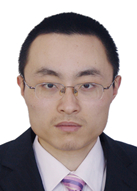 |
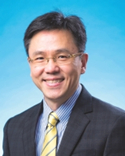 |
 |
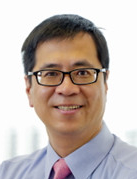 |
|
Prof. Yudong Zhang University of Leicester, UK |
Prof. Dong Sun City University of Hong Kong, Hong Kong |
Prof. Nicola Mulder University of Cape Town, South Africa |
Prof. Stephen Kwok-Wing Tsui The Chinese University of Hong Kong, Hong Kong |
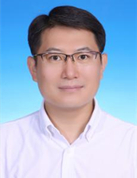 |
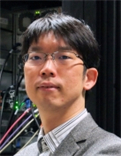 |
 |
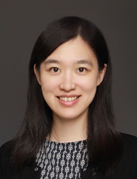 |
|
Prof. Dong Ming Tianjin University, China |
Prof. Tetsuo Shibuya The University of Tokyo, Japan |
Assoc. Prof. Lin Meng Tianjin University, China |
Assoc. Prof. Jie Luo Shanghai Jiao Tong University, China |
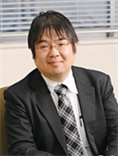 |
 |
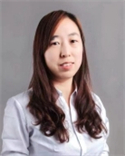 |
 |
|
Prof. Mitsuhiro Ogawa Teikyo University, Japan |
Prof. Hao Jiang Renmin University of China, China |
Assoc. Prof. Xingwei An Tianjin University, China |
Asst. Prof. Faez Iqbal Khan Xi'an Jiaotong-Liverpool University, China |
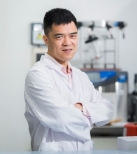 |
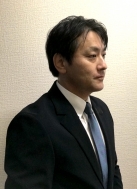 |
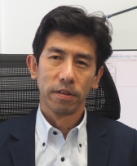 |
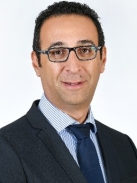 |
|
Prof. Chenjie Xu (H-index: 60) City University of Hong Kong |
Prof. Yasukazu Nakamura (H-index: 65) National Institute of Genetics |
Prof. Keiji Nakajima Nara Institute of Science and Technology, Japan |
Assoc. Prof. Marwan El Rich Khalifa University |

